'I was a prolific thief - if I end up homeless, I'll be a problem'
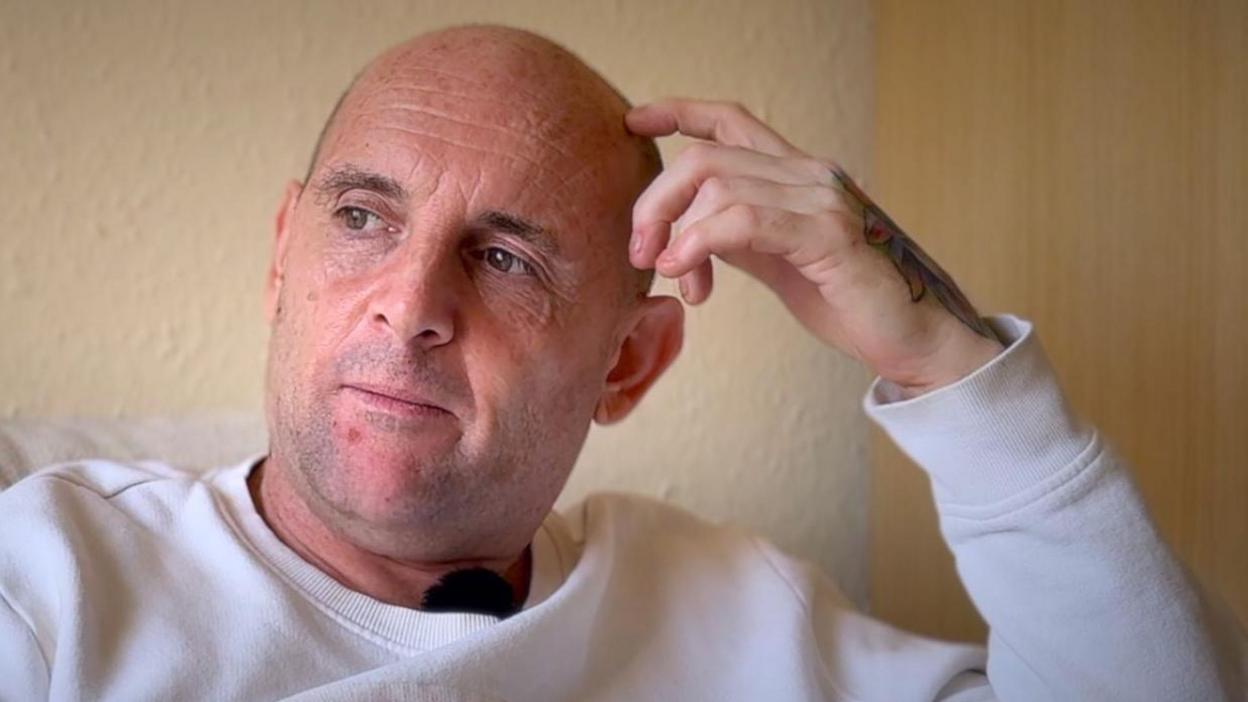
Ben is one of more than 200 people in Northampton facing homelessness after the charity that accommodated him stopped receiving housing benefits
- Published
"I was one of Northampton's most prolific car thieves," says Ben, 49, who speaks plainly about the problems of his recent past.
He is one of more than 200 persistent offenders, sex workers, drug addicts and others with poor mental health facing homelessness in the town after the charity that accommodates them stopped receiving housing benefits.
Northampton Association for Accommodation for Single Homeless (NAASH) has supported vulnerable people referred to it by the council for more than 35 years.
The Reform UK-led council insists it is taking steps to support people at risk of eviction.
Now on the straight and narrow, Ben fears he risks falling back into a spiral of rough sleeping, drugs and crime if he loses his home.
"I am going to be a problem," he says. "This is going to be a problem."
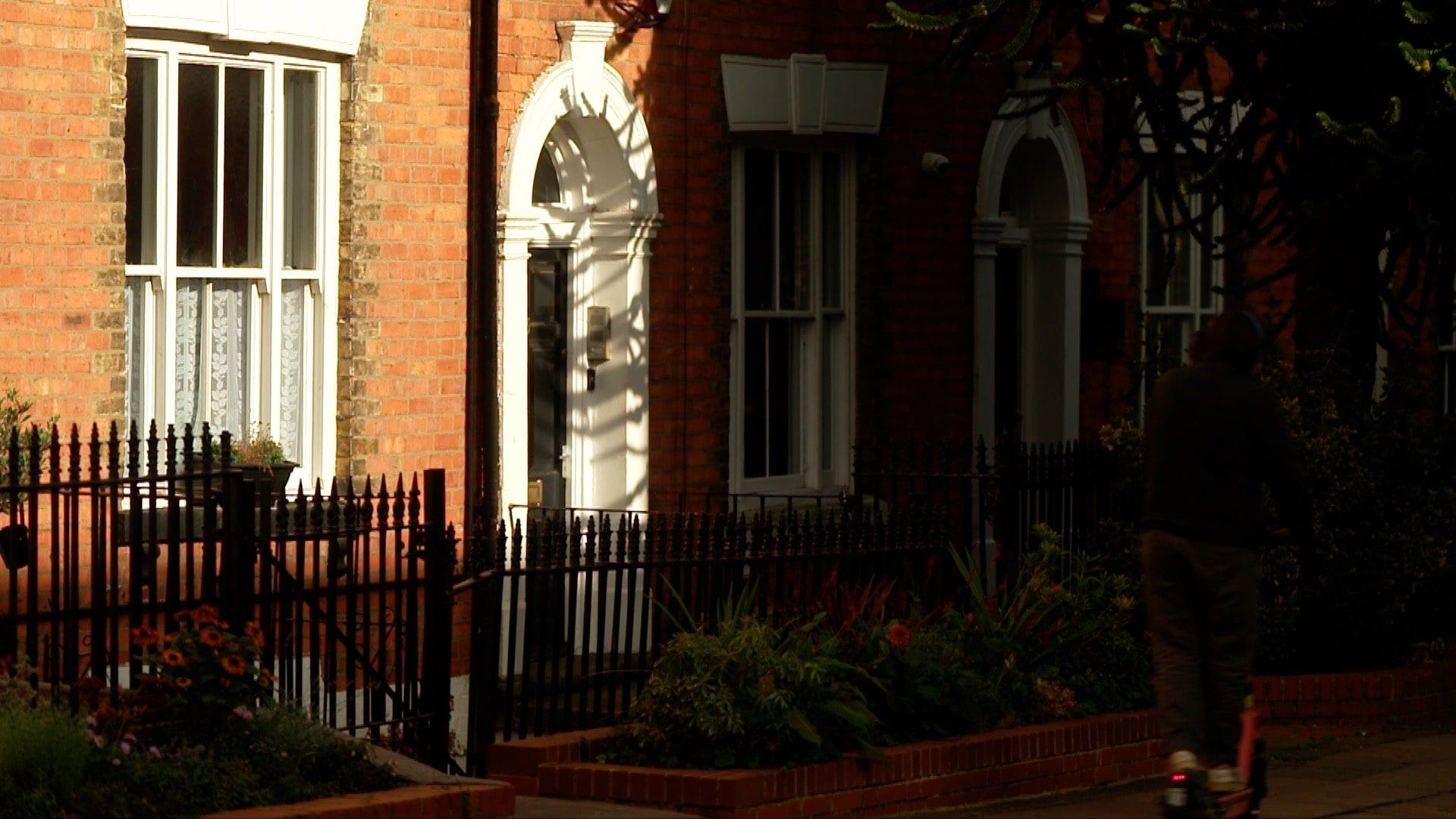
NAASH's offices in the town centre are visited daily by dozens of its customers
"I'm not going to use the fact I had a bad childhood and was on drugs as a kid as an excuse," says Ben, who is off heroin and trying to rebuild his life.
"But my big problem is boredom - that's why they're always trying to get me to do things here. If I didn't have NAASH, I'd be in trouble. I need structure and routine."
Ben, who has Tourette's syndrome and attention deficit hyperactivity disorder, says: "It's too easy for me to just go and do a crime and be back in jail - but that's not me being there for my kids and my dad, who's got dementia."
As part of the transition to Universal Credit, new rules brought in by the Department for Work and Pensions (DWP) require organisations like NAASH to show evidence of the support they provide to continue claiming housing benefit for their clients.
Theresa Kelly, the charity's director, says her small team of frontline staff were able to find evidence for all but a few claims since April 2023.
"But the payments have been stopped for everybody" Mrs Kelly says and "the council has asked us to repay about £2m in 'overpaid' benefits claims."
The impact on NAASH's finances was catastrophic and it has gone into voluntary liquidation.
If the charity cannot be saved by the end of the month, its 55 rented houses of multiple occupation (HMOs) will be handed back to their landlords leaving 211 sitting tenants who would then face possible eviction.
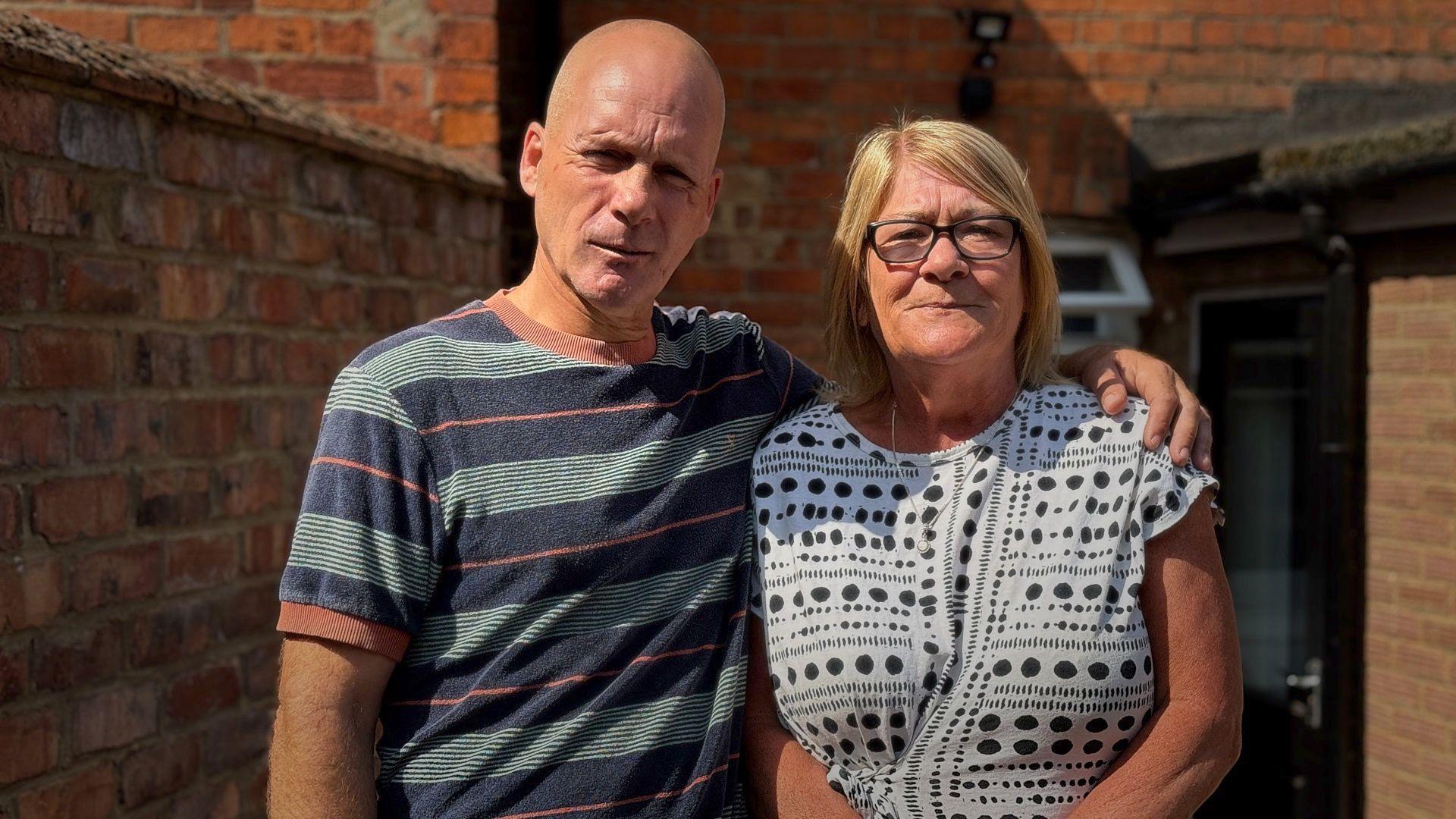
Lee (left) has spent 20 years of his life in prison. Theresa Kelly (right), services director of NAASH, says she fears what the charity's closure will mean for those it supports
Lee, 54, is another tenant supported by NAASH.
A persistent burglar and former heroin addict, he was freed into homelessness from HMP Five Wells last year under the early release scheme.
NAASH found him sleeping rough and gave him a place to stay days later.
"Homelessness brings depression, drugs and alcohol," he says, "and to supply the drugs and alcohol I'm going to have to do crime.
"I don't want to do that again, it's a scumbag thing to be honest, but it's all I know apart from this."
Lee says he has spent 20 years of his life in prison.
"With NAASH I've not done [anything wrong] - it's the longest I've ever been out.
"They'll take me to hospital appointments and fill my forms in because I can't read and write properly."
He warns that the situation facing him and his fellow tenants will have "a ripple effect for everybody" in the area including the police, courts and the wider community.
"There's gonna be another 200 of us sleeping in a doorway," he says.
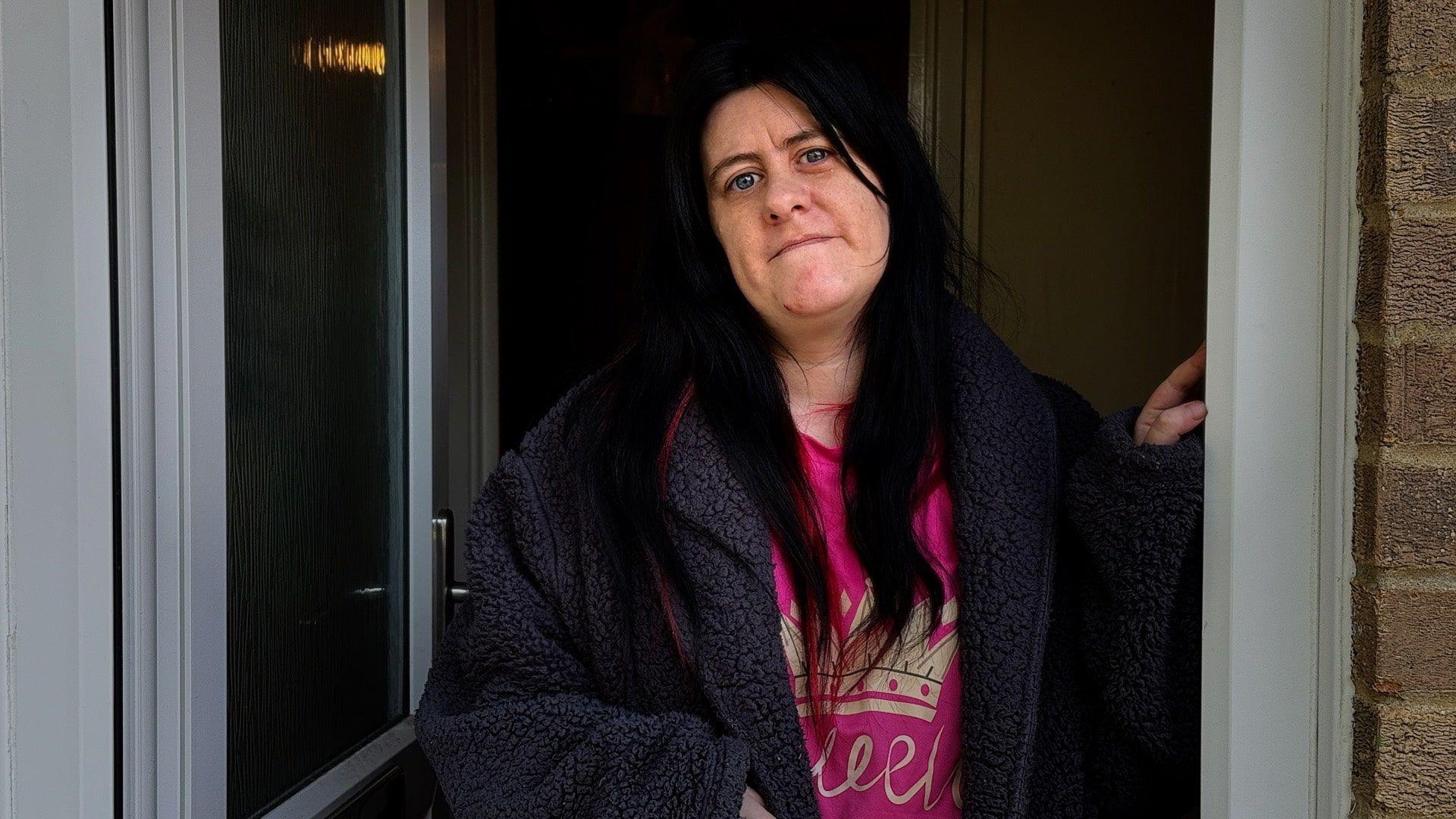
Rachel says she has been "getting into a good place" and has started making trips out to visit the doctor for instance or her children.
The council says it will offer "tailored support" to vulnerable tenants and look at each individual case.
But Rachel, who is 36 and has agoraphobia, says she has not yet been contacted.
"Before I came to NAASH," she says, "I was in active heroin addiction, didn't leave my bedroom, wouldn't even open the curtains or speak to anybody.
"But I'm not an addict anymore, I've started exposure therapy because the charity referred me to the mental health team, and I'm socialising as well."
Rachel says that because she has a county court judgement against her she cannot bid on a council house until 2028.
"If I got an eviction notice, I would have nowhere to go," she says.
More from the London and East Investigations team
Investigating one of the UK's most abusive cults
- Published27 July
Balconies 'risk to life from start' on £41m estate
- Published25 June
Caravan park homeowners warn of seller's remorse
- Published14 June
Because many of NAASH's clients are from continental Europe and speak little English, they rely on its support workers to interpret for them.
Jan, 63 and from Poland, spent six years sleeping rough in Northampton.
It had a huge toll on his health and, as if to demonstrate, he lifts his tee shirt to reveal an angry, red rash all over his stomach.
"I'm not able to live on the streets anymore," he says, "but I stay positive – if I'm made homeless, I guess I'll just have to ask for a sleeping bag and a tent."
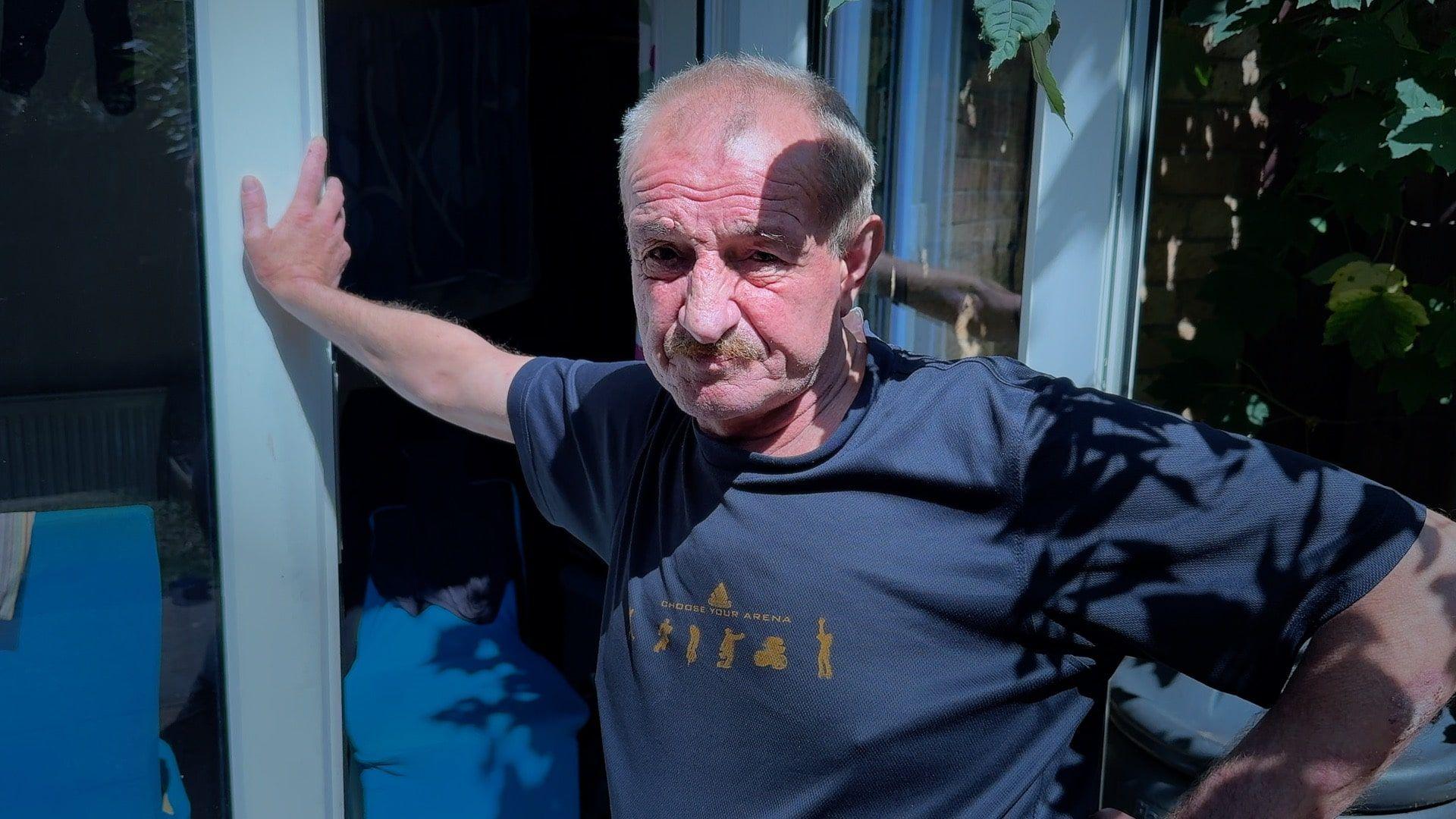
Jan relies on his support worker from NAASH to interpret for him and fill out forms.
Local councils claim back housing benefit payments from the DWP by submitting subsidy claims.
They generally receive 100% of the subsidy for registered providers, but in the case of supported housing provided by a charity, it is reduced to 60% or less.
This has led Mrs Kelly to believe NAASH has been "forced out by cost-cutting measures".
"We complied fully with the regulations and have been treated unfairly," she says.
"But there is a wider impact to society from this, because 14 of our tenants are serious violent or sexual offenders."
In a statement, Charlie Hastie, cabinet member for housing and communities, denied the council's move was "a cost-cutting exercise" adding the authority stopped paying housing benefit "when it became clear the claims did not meet government guidelines".
He says NAASH's decision to close "followed a long period of discussion and negotiation".
"We recognise the deep anxiety this situation causes for people with complex health and personal challenges," Mr Hastie adds.
The DWP said it supports more than "a million people through housing benefit every year" via local authorities and that it is for councils to decide eligibility "by applying DWP rules".
Get in touch
Do you have a story to share with the BBC East of England investigations team?